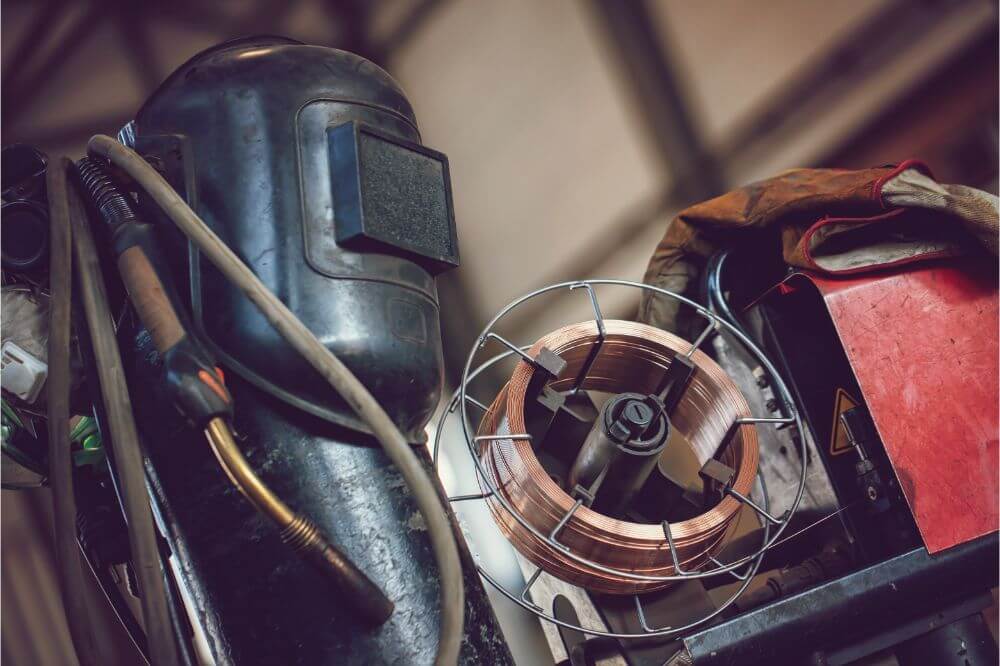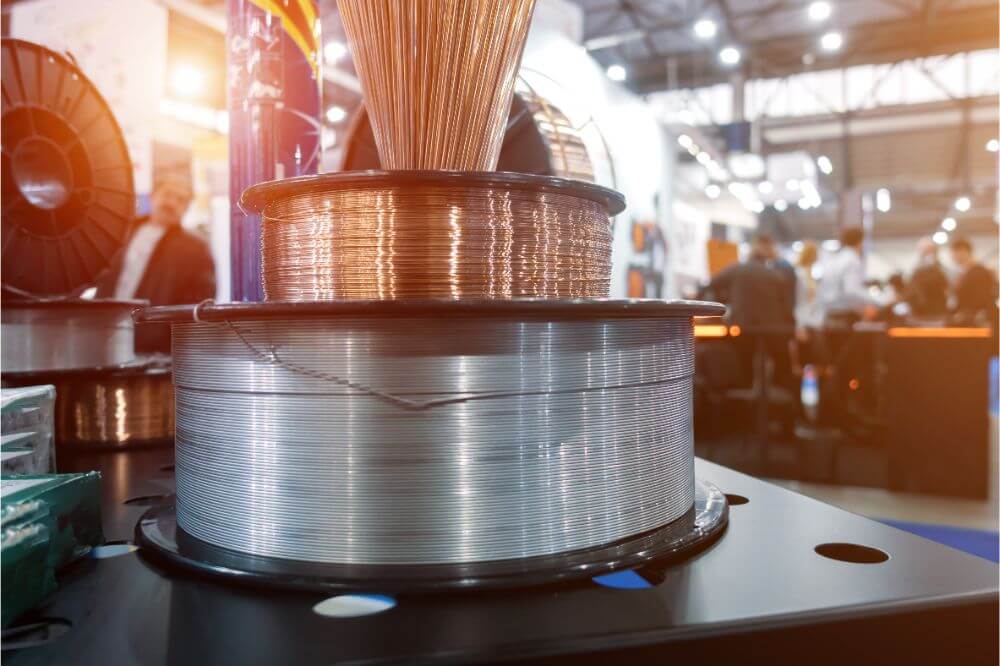Welding plays an important role in many industries and is used to join two pieces of metal securely. The performance of a weld is largely based on the welding wire used, which is why it’s important to have an understanding of the different types of welding wire and their effects on weld performance.
In this article, we’ll explore the question of is thicker welding wire better and the factors that contribute to welding performance.
What is Welding Wire?
When it comes to welding, the type of welding wire used is a key factor in determining the quality of the weld. Welding wire is a type of metal wire used to provide a continuous welding current during arc welding.
The wire is available in a variety of sizes, materials, and thicknesses, and each of these factors can affect the performance of the weld. Thicker welding wire is not necessarily better, as there are several other factors that contribute to the quality of the weld.
The thickness of the welding wire is an important factor to consider when selecting the right type of wire. Generally speaking, thicker wire can provide a higher welding current than thinner wire, which can increase the strength of the weld. However, the thickness of the wire alone doesn’t guarantee a strong weld.
The quality of the welding wire and the welding technique used are also important factors. High-quality welding wire can provide a more consistent weld, while a well-executed welding technique can result in a stronger bond.
Factors That Contribute to Welding Performance
When it comes to welding performance, there are several factors to consider. Thickness of the welding wire, the quality of the welding wire, and the welding technique used are all key players. Each one of these variables is important to consider when deciding if thicker welding wire is the right decision.
Thickness
When it comes to welding performance, the thickness of the welding wire is a major factor. Thicker welding wire will generally require more amperage to properly melt it and make a weld, which can lead to a more consistent and successful weld.
Thicker wires can also be more difficult to maneuver and can be harder to control, especially for novice welders. However, using a thicker welding wire can provide some advantages, such as improved weld strength, reduced welding time, and improved weld quality.
Quality of the Welding Wire
The quality of the welding wire is also an important factor to consider when determining whether thicker welding wire can improve welding performance.
Poorly manufactured welding wire, regardless of thickness, may contain contaminants or substandard wire coating, which can lead to welding defects such as inadequate fusion or cracking.
It is important to select welding wire that meets the necessary requirements for the application and that is manufactured to the highest industry standards for quality.
Welding Technique
When it comes to welding performance, the welding technique is just as important as the thickness of the welding wire and the quality of the metal. A skilled welder will be able to make the most of the material they have to work with, regardless of the wire thickness.
The most important factor for successful welding is to use the correct welding process for the thickness of the wire being used. The correct welding technique should deliver a consistent, high quality weld.
Additionally, the welding technique should be adjusted to take into account any changes in the wire thickness.

What are the Benefits of Thick Welding Wire?
Thicker welding wire can be beneficial in certain circumstances, but it’s not the only factor when it comes to welding performance. The benefits of using thicker welding wire include improved weld strength, reduced welding time, and improved weld quality.
While these benefits can be advantageous, it’s important to note that thicker welding wire can also come with a few disadvantages, including increased cost, increased risk of weld porosity, and it can be more difficult to use.
Improved Weld Strength
Thicker welding wire is generally more beneficial for weld strength, as it provides increased deposition rates. This means that more material can be welded in a shorter amount of time, resulting in stronger welds.
Additionally, thicker welding wire helps to reduce the risk of weld porosity and creates a smoother, more uniform weld bead. This results in better weld quality and improved weld strength.
Reduced Welding Time
Using thicker welding wire can reduce the time it takes to complete a weld, which is a great benefit for those who are welding large structures or who need to complete a welding job quickly. Thicker welding wire can also improve the strength of the weld and the quality of the weld by providing better penetration of the weld.
The thicker wire is able to provide a stronger bond between the two pieces of metal being welded, which can help prevent weld failure.
Improved Weld Quality
Thick welding wire can improve weld quality, making the weld more aesthetically pleasing. The thicker wire can also provide a more consistent weld and can reduce the risk of welding defects.
Additionally, a thicker wire can increase the penetration of the weld, making the joint stronger. This makes thick welding wire ideal for welding materials that need to withstand high stresses and loads.
What are the Disadvantages of Thick Welding Wire?
The disadvantages of using thicker welding wire are increased cost, increased risk of weld porosity, and difficulty in use. Thicker wire is more expensive than thinner wire due to the increased amount of material required.
The increased thickness can also lead to a higher risk of weld porosity, as the molten metal can become trapped in the thicker wire.
Finally, thicker wire can be difficult to use since it is more difficult to manipulate than thinner wire.
Increased Cost
Thicker welding wire may come at a higher cost and come with some additional risks. The cost of thicker welding wire is typically greater than a thinner wire because more material is needed to make the thicker wire.
Additionally, due to the larger size of the thicker wire, there is a greater risk of weld porosity, which is a result of trapped gas and can negatively affect weld quality.
Increased Risk of Weld Porosity
Thick welding wire is more expensive than thin wire, so it may not be cost-effective for all projects. Additionally, the increased thickness of the wire increases the risk of weld porosity.
Porosity is the presence of tiny holes in the weld, which can weaken the welded joint and lead to material failure. It is important to take extra care to avoid porosity when using thick welding wire. Furthermore, the thickness of the welding wire can make it difficult to maneuver in tight spaces or when welding thin materials.
Can be Difficult to Use
While thicker welding wire generally offers more benefits than drawbacks, there are some disadvantages that should be taken into account. For instance, thicker welding wire is more expensive than thinner wire.
Additionally, there is an increased risk of weld porosity when using thicker welding wire, which can lead to weaker welds. Lastly, welding with thicker wire can be difficult due to the increased amount of heat produced. This can make it difficult for some welders to get the desired results.
Conclusion
When it comes to deciding if thicker welding wire is better, the answer is not a simple yes or no.
Depending on the application, a thicker wire may be beneficial due to improved weld strength, reduced welding time, and improved weld quality. However, it can also be more expensive and more difficult to use and carry a higher risk of weld porosity.
Ultimately, the best welding wire should be chosen based on the needs of the specific project.

